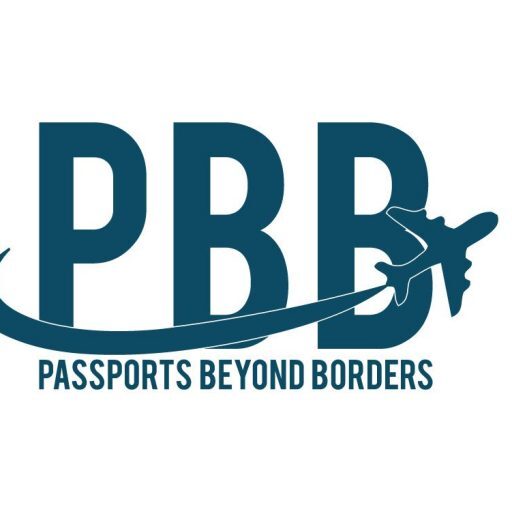Before you decide to take an International job and move with your family, it is important to ask the right questions, do some background checks to ensure you and your family will be comfortable in the new country and organization before moving.
Table of Contents
How aligned is the organization to my passion and values?
Before taking up a new role in any office or organization, kindly ask yourself how the organization is aligned with your passion, skills, and values. This will be able to guide you to know if this organization will be the type of organization you will be happy to work and stay in. This simply means that, if you are passionate and have core competencies in climate change or food security, then those are the types of organizations you should be targeting; as these organizations will enable you to be able to live your passion. You will be able to create more impact in such an organization and be happier in your job. This happiness in your job is very important as it transcends into your happiness in your home or personal life.
Do a background check on the organization
Before taking up a role please check if the organization is financially stable, going through restructuring and find out from colleagues in that organization if they are happy working for that organization or not(organization culture). You could easily move into an organization that is struggling and end up losing your job because of funding. if you had carried your children out of your country and this happens, it may be devastating for you and them. Take time to talk to staff in the organization and how they find the culture and growth potentials before making the move.
Safety of the country and the culture of the people
Before taking an International Job, it’s important to look at is the safety of the country and the culture of the people in the country. You may not carry your family in any country that is politically unstable as this will affect your children’s safety and their education. It is very important also to look at the facilities for children in that country like education standards, the language as well and other facilities for leisure for you and your family. One very important thing to look at is the culture of your destination country and how you and your family will easily integrate or not. If you find yourself having an offer to a country that is hostile to blacks (for example) then you have no business taking up a job there.
Salary against the cost of living in the country
You need to be sure that the salary versus the cost of living in that country is worth it. You can’t take up a job in a country that does not allow you to save enough and take care of your children as an expatriate. The way to check this is to talk to people living in that country and working for similar organizations and ask how they cope with the salaries they get or you can go through this blog Passports Beyond Borders for related experiences you can learn from. This will help you to make an informed decision before taking up the offer. Use the search icon and enter a destination.
Read Also: Expat Interview – A guide to living in Malawi in 2021
Housing and Cost
You need to confirm if your organization will give you a house and pay for the bills or not. This is very typical of INGO and companies, with the UN, you bear the cost. This will really enable you to understand the full offer and how this may offset your salary as housing may also mean a reduction of the net salary. However, if this is covered, it would mean that one huge burden has been taken off your shoulders.
Taxes
You need to know if you will be paying taxes in the country or not, and if so, how this will affect your net salary. In some organizations and countries, you are required to pay taxes as an expatriate for some countries you are not allowed to. You should clarify with your organization if this is the case and who will pay the taxes. Some organizations cover taxes for their staff and some do not.
Transport
You need to know also if the organization will provide transportation or not and if not, how easy it is to get public or private transport in the country. Will you get a duty free or duty paid car? It’s important to ask all these questions. This will enable you to prepare and ship a car before arrival or rent/buy a car while in-country. Some organizations give you free transport for the first three months, thus giving you enough time to prepare to get your own transport.
Home leave
You need to be sure if the office pays your ticket for home leave/vacation or not, and if you are in a danger zone you need to know your RnR (Rest and Recuperation) entitlements. You should ask the questions on your leave entitlement including sick leave, paternity, and maternity leave. This is usually part of the offer package and in cases where you are not clear kindly ask other colleagues or the HR person for clarification.
Relocation and settling-in allowance
You need to check and be sure that the contract covers that as well as repatriation allowances. These allowances really help you to settle in a new country, and where these are not available, ask how the organizations facilitate your settling in the new country especially if you are travelling with your family.
Health insurance
You need to be sure that the contract covers health insurance for you and your children even if you are not moving with them. You must check your insurance policy to know what is covered and what is not and ask all the necessary questions. Also, check what percentages it covers and which countries the health insurance is valid in. This really helps you to plan especially if you like travelling. It also gives you peace of mind as you know that health for you and your children are covered irrespective of where you are. Also, find out if you get coverage that you can pay when you retire.
Life insurance
You also need to ask what your family gets as life insurance coverage if you die in the duty station or become incapacitated due to work-related accidents. This is very important as you really wish to be sure that if you are not around your children are still well taken care of and that if you were incapacitated that your organization will be able to pay you.
Pension
You need to seek clarity on the pension scheme how many years you need to work for and what you will benefit from when you retire and how to access it. This is a very important question because as an expatriate you usually don’t pay for social insurance in your country of origin in most cases. This is a safety net when you retire.
Break clause
Most people do not pay attention to this, but you need to pay attention to the break clause in the contract, if the organization or you can break it and what notification is needed. Try and understand the type of contract you are having because you don’t wish to have a contract that plays more in favour of the organization. You are not sure about the break clause, feel free to ask HR to clarify the contract type and the break clauses.
Culture and language
You really need to be sure that the continent or country you are going to work in is racially unbiased. This can be traumatizing for the kids if the country is racist. You need to know if they speak English or French and if you have to learn an additional language.
Children and spouse allowance
You need to check if your spouse and children get allowances or not in the contract and what other benefits they may receive as your dependents while in active service, if you become incapacitated and if you retire or die.
In conclusion, before applying it’s always good to do a background check. Once the offer comes in, take your time and ask the above questions so that you are sure that you are moving to a country that will enable you and your children to live happily, without fear of being terminated due to break clauses or lack of funding. Deciding to move when you are married with kids can be daunting, you really need to balance the pros and cons and make the decision. Working internationally however exposes you and your children to other cultures and prepare them for a better future as well.
Do you want to write or share your experiences on PBB? Take a look at the kind of articles we would be happy to publish here.





This is a very good write-up big bro
Wow this is an eye openers so many people fail to evaluate all these before taking and international offer. Thanks a lot for sharing
Quite interesting.